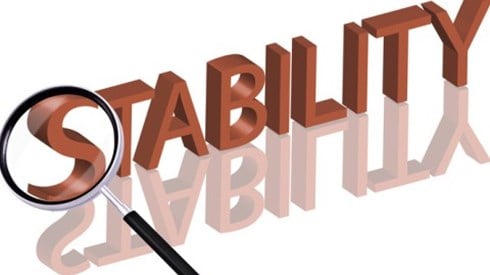Demotech Analysis Finds RRGs Financially Stable, Adequately Reserved

May 05, 2020

Despite political and economic uncertainty, risk retention groups (RRGs) remain financially stable and continue to maintain adequate loss reserves while increasing written premiums, according to an analysis of RRGs' 2019 financial results by Demotech Inc.
In its report, Demotech noted that RRG ownership is restricted to the group's policyholders, adding, "This unique ownership structure of RRGs may be a driving force in their strengthened capital position."
RRGs were domiciled in 20 jurisdictions in 2019, according to Demotech, with 87 domiciled in Vermont, the most for any jurisdiction. Another 36 RRGs were domiciled in South Carolina, with 33 in the District of Columbia, and 15 each in Hawaii and Nevada. Remaining domiciles each had 10 or fewer RRGs.
From year-end 2018 to year-end 2019, RRGs' cash and invested assets increased 9.3 percent, while total admitted assets increased 9.2 percent, Demotech reported. Collectively, RRGs' policyholders' surplus increased 12.9 percent during the period, representing the addition of nearly $626.3 million to policyholder surplus.
"Over the past 5 years, aggregately RRGs have increased assets and policyholders' surplus while maintaining sufficient liquidity and leverage as well as other balance sheet ratios," Demotech said.
RRGs' liquidity—measured by cash and invested assets to liabilities—at year-end 2019 was 154 percent, according to Demotech, which indicated a value greater than 100 percent is considered favorable as it indicates more than a dollar of net liquid assets for each dollar of total liabilities. Collectively, RRGs have reported liquidity results between 150 and 156 percent at the end of each of the past 5 years.
RRGs' loss reserves to policyholders' surplus ratio for year-end 2019 was 95 percent, a decrease from 103 percent at year-end 2018, Demotech reported.
Looking at RRGs as a group, "the ratios pertaining to the balance sheet appear to be appropriate and conservative," Demotech said. "These reported results indicate that, collectively, RRGs remain adequately capitalized and able to remain solvent if faced with adverse economic conditions or increased losses."
With regards to their underwriting results, collectively, RRGs were unprofitable in 2019, reporting an aggregate underwriting loss of $152.4 million, Demotech found, adding that it was the largest year-end underwriting loss RRGs posted in the past 5 years. Some 116 RRGs reported an underwriting loss in 2019, while 105 reported an underwriting gain.
A $531.4 million net investment gain offsets those underwriting losses, however, resulting in a net income of $321.3 million. Each figure was the highest reported level in the past 5years. Demotech found that 158 RRGs reported net income in 2018, while 52 reported a net loss.
RRGs' collective loss ratio at year-end 2019 was 85.5 percent, the highest reported level in the last 5 years, according to Demotech. The group's expense ratio at the end of the year was 23.8 percent, the lowest reported level in the last 5 years, while RRGs' collective combined ratio at year-end 2019 stood at 108.3 percent, the highest level in the last 5 years.
"Despite the underwriting losses, the ratios pertaining to the income statement appear to be appropriate for RRGs collectively," Demotech said.
RRGs collectively reported $3.5 billion of direct premium written in 2019, according to Demotech, a 7.5 percent increase over the prior year. Net written premium stood at nearly $2 billion in 2019, up 13.2 percent from 2018.
May 05, 2020




